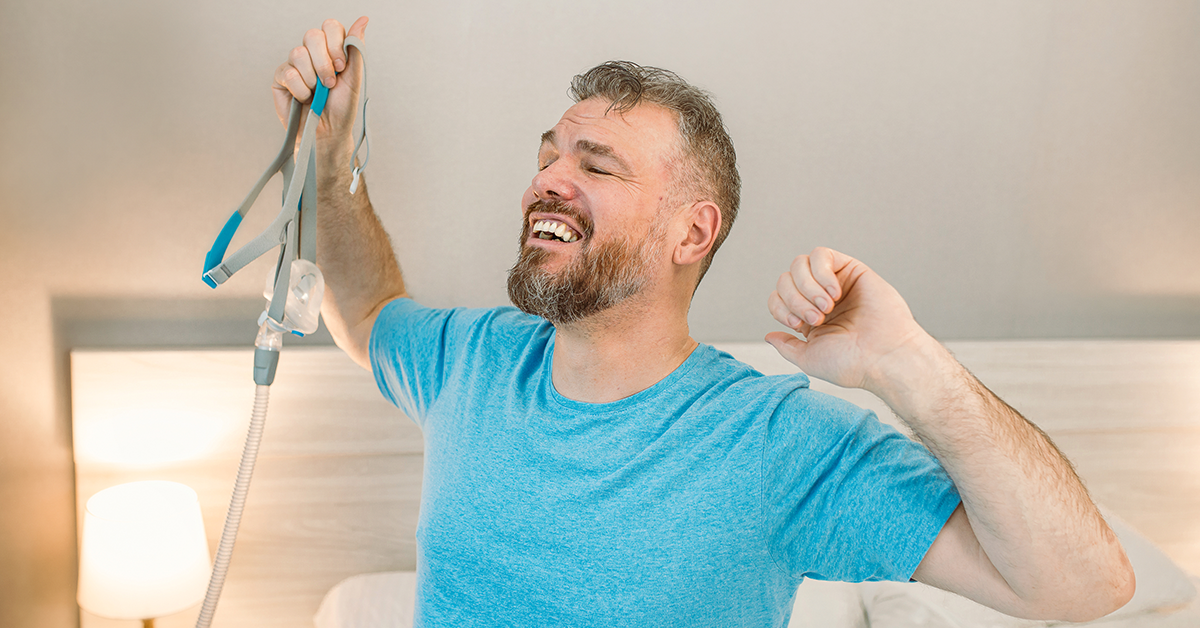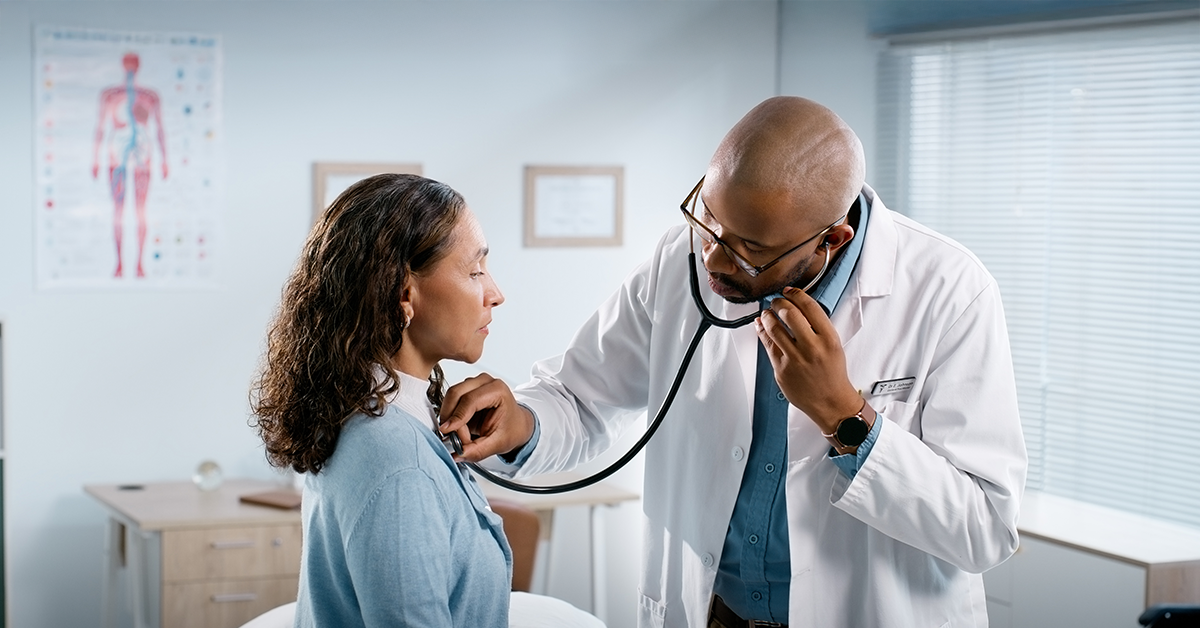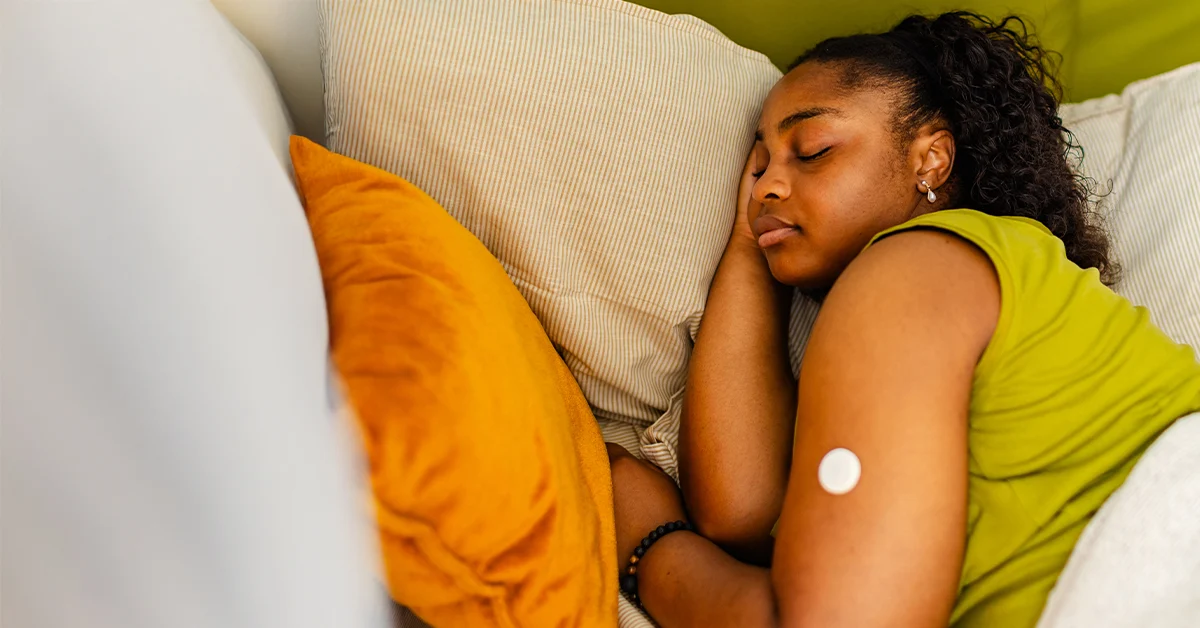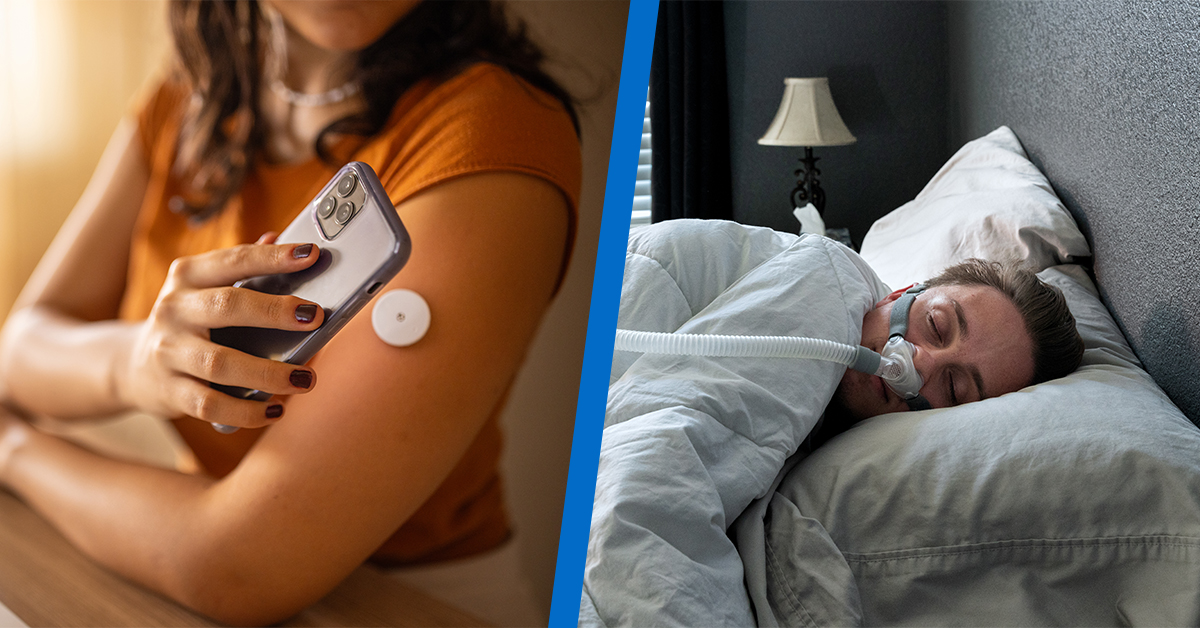If You Are Suffering From a Winter Cold or Flu, You Should Keep Using Your CPAP Machine. Here’s How.
Welcome to winter—the season of the sick. At this time of year, colds and flu abound, causing congestion and making breathing more difficult.
Apria Healthcare VP of Sleep Business Robert Miller states, “This presents an added challenge for people with sleep apnea. Their breathing is already compromised, causing them to wake up throughout the night, sometimes hundreds of times.”
More than 8 million Americans effectively treat their sleep apnea with a CPAP (continuous positive airway pressure) machine.
The question is, should you continue with your CPAP treatment if you have a stuffy nose and difficulty breathing?
The simple answer: yes!
How CPAP Helps Improve Cold Symptoms
Your CPAP machine effectively treats your sleep apnea by helping you get the sleep you need. Feeling rested is critical to help you recover from your cold or flu more quickly.
The pressurized air delivered by your CPAP device may clear mucus from your nasal passages and keep them open, decreasing congestion. And the heated, humidified air adds comfort as well as relief.
Prevent Infection by Keeping Your CPAP Clean
It’s important to regularly clean your CPAP machine, especially during cold and flu season. This can help prevent the buildup of bacteria, mold, dust, and germs, which may worsen congestion or cause sinus infections.
Cleaning your CPAP machine is relatively easy, especially when you do it routinely. The supplies you’ll need are readily found in your home:
- Warm, clean water
- Mild soap (although don’t use harsh dish detergents, alcohol, bleach, strong-smelling products, scented oils, or antibacterial soaps)
- Clean, dry towels
- A sink, tub, or basin large enough to hold your hose or tubing
Most manufacturers and sleep experts recommend cleaning your CPAP mask—including the cushion, headgear, and frame—every day.
You should also clean the following components weekly:
- CPAP filters, especially reusable filters
- CPAP tubing
- CPAP humidifier
Learn more about how to properly clean your CPAP machine.
Tips for Improving Your Sleep
If you are battling a cold or flu, here are some simple yet effective ways to help you sleep better while using your CPAP.
Wear a full-face mask
If you wear a nasal mask with your CPAP, breathing through your nose when you are congested may be even more difficult. This is especially true for people with a deviated septum, where one side of the nose is blocked.
A full-face mask allows you to breathe through your nose or your mouth. As your congestion subsides, you can switch back to your nasal mask.
Before switching to a full-face mask, talk to your healthcare team, who can help you make the transition easier.
Change your sleeping position
Sleeping on your side helps keep your airways open so you can breathe more easily—and get the sleep you need.
Sleeping on your back tends to make congestion worse. But if you can only sleep in that position, use pillows to elevate your head to allow mucus to drain.
Try over-the-counter treatments such as nasal sprays and decongestants
Saline nasal sprays or rinses add moisture to your nasal passage to decrease swelling. And decongestants such as antihistamines help reduce inflammation and improve breathing.
These products are widely available, relatively inexpensive, and effective. But be sure to first talk to your doctor, since some may interact with other medications you may be taking.
Try heated humidifiers
Research shows that heated humidification with CPAP helps decrease the risk and duration of infection.
Heated humidifiers warm and moisten the air before it reaches your nose to reduce congestion, ease inflamed nasal passages, and make breathing more comfortable while you sleep.
Adjust CPAP pressure
If your nasal passages are congested, higher CPAP pressure may be needed to help you breathe easier. Speak with your doctor about adjusting the pressure of your CPAP machine.
Consider APAP
CPAP machines deliver a constant flow of air at one pressure setting. If a CPAP machine isn’t helping, ask your doctor about an APAP (automatic positive airway pressure) machine. It keeps your airways open while you sleep by automatically adjusting the amount of airway pressure based on your needs.
Want to Feel Better? Sleep Better? Talk to a Sleep Coach!
Apria has a team of sleep specialists and coaches who will work closely with you and your doctor to help you get through the cold and flu season—and get the quantity and quality of sleep you need. To speak directly to a live sleep expert, call 877-255-2426 or visit www.apria.com/services/sleep-apnea.
References
1. Brandon, P. (updated 2022, May 31). Can You Use CPAP With a Cold or Stuffy Nose? VeryWell. https://www.verywellhealth.com/should-i-use-cpap-with-a-cold-3015022.
2. (2016, August 10). Using your CPAP in Winter with Colds & Flu. ResMed.
https://www.resmed.co.uk/patient/sleep-apnoea-blog/using-your-cpap-in-winter-with-colds-flu/
LEGAL DISCLAIMER: Material in this newsletter is provided for general health education and informational purposes and to provide references to other resources only; it may not apply to you as an individual. While Apria Healthcare believes that the information provided through this communication is accurate and reliable, Apria Healthcare cannot and does not make any such guarantee. It is not intended to be a replacement for professional medical advice, evaluation, diagnosis, services or treatment (collectively, “medical treatment”). Please see your healthcare provider for medical treatment related to you and your specific health condition(s). Never disregard medical advice or delay seeking medical care because of something you have read on or accessed through this website. Reading this newsletter should not be construed to mean that you have a healthcare provider/patient relationship.
Sign Up For Apria Email Newsletters

.png)



